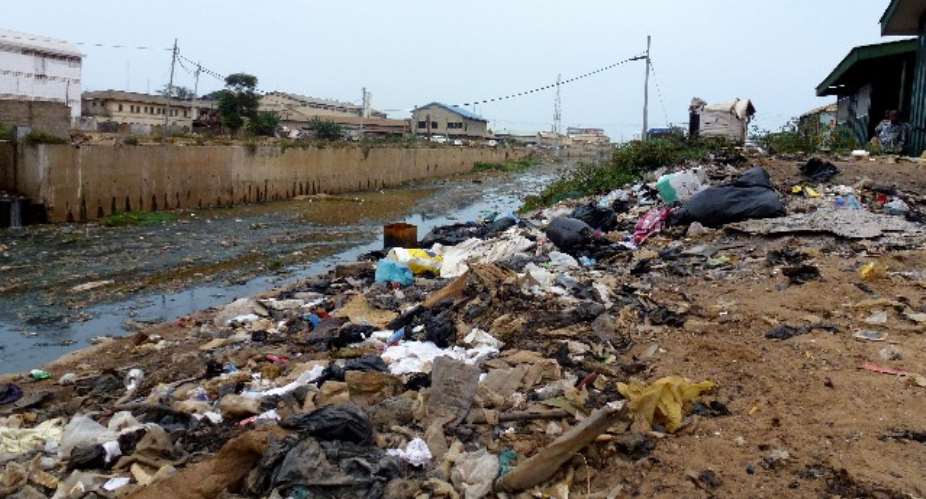After my investigation into the state of refuse disposal and some revelations that came out of it, I had decided never to write about until yesterday.
In early 2017, I arrived in the southern Ghana city of Kumasi, which just two years before has been paralyzed by a garbage – worker strike and a severe shortage of landfill space.
The Metropolitan government (Assembly) had responded to public anger over uncollected trash with decrees on waste segregation and compositing that went unenforced, and by the time I showed up, not much had changed. In the city of Ghana, there are still putrid piles of garbage all around town. People or traders in Kumasi accept open dumps in their neighborhoods as a fixture of the landscape, to be seen but ignored.
Like many other Ghanaian cities, Kumasi has a massive garbage problem- the product of rapid economic growth, overcrowding, poor urban planning, corrosive corruption and political dysfunction.
As I walked around town and I saw Kumasi colossal chain of manufacturing, consuming and discarding, I began to think about my own consumption habits. As a concern citizen I consider environmental law and order myself conscious, yet I live at the top of the global pyramid of consumption.
Like most Americans, easily consume more goods and services in one year than most Ghanaians consume in a lifetime.
As I eyed the piles of the trash in Kumasi streets, I began to wonder; who really has the garbage crisis? My search for the answer led me to sign up for an unusual tour of Kumasi.
The city’s aging infrastructure simply cannot keep up with the waste. It surprises me traders are purposely dumping refuse on the streets ofKumasi, and most do not see anything wrong with their behavior. In Ghana waste is considered a threat to a person’s dignity and status. Kumasi instituted door-to-door trash dust bin in years ago – a forward –looking program in Ghana. But many residents or traders believe their door is too close to home to garbage. Instead, they chuck their waste into these street-side dumps. “Traders and Residents dump their trash in the streets not because they are poor, but because of habit and culture,” “As long as many house is clean; they think, “What is the big deal?”.
The garbage in the street isn’t just unsightly. It’s also a public – health threat, serving as a prime habitat for rodents and mosquitoes that can spread malaria, dengue fever. “Garbage is like a bomb waiting to explode.it is a breeding ground for so many diseases” .
In the United State, it’s easy to forget about garbage altogether. Poor sanitation is no longer a major public health threat the way it was between 1850 and 1920, when people leave their garbage in the streets or tossed it in rivers. Today, most cities have door-to-door trash collection, and they have national standards for landfills, requiring plastic liners and groundwater monitoring at the sites. Urban cholera and typhoid outbreaks exist only in history books. Still, I was surprised to learn that the average trader in Kumasi throws out very little trash; about a pound of garbage per day, or the weight of a grapefruit.
The average American generates more than four times that amount, according to the U.S. Environment Protection Agency. “Why is it so hard to look at garbage?” to me, the secrecy of waste managers-which is surely based on an aversion to accountability- is only feeding the culture of shame that has come to surround an ordinary fact of life; throwing things away----------- I found that from the moment my trash left my house and entered the public domain, --------- it become terra incognita, forbidden fruit, a mystery that I lacked the talent or credentials to solve.
The massive market known as “DoctorMensah, Kejetia ,Pampaso, Central Market” is the epicenterof this churning economy of waste or plastic.
In the United State, their waste management system is prettier and, more sanitary than here in Africa or Ghana. Their garbage is not piling up in plain view. But our outsized consumption is causing outsized damage. We leave behind more waste than any country in the (AFRICA OR WORLD) ,but we cannot see our own footprints. Kumasi must be liberated from the shackles of recklessness and negligence.
By : [email protected]
Kumasi – Kenyase
Ashanti Region.





 We’ll protect state wealth from opaque deals – Prof Jane Naana
We’ll protect state wealth from opaque deals – Prof Jane Naana
 Mauritania president says running for second term in June polls
Mauritania president says running for second term in June polls
 I won't ever say I was a mere driver’s mate' — Prof. Opoku-Agyemang
I won't ever say I was a mere driver’s mate' — Prof. Opoku-Agyemang
 2024 polls: 'EC struggling to defend credibility'— Prof. Opoku-Agyemang
2024 polls: 'EC struggling to defend credibility'— Prof. Opoku-Agyemang
 Akufo-Addo gov't's 'greed, unbridled arrogance, unrestrained impunity, sheer dis...
Akufo-Addo gov't's 'greed, unbridled arrogance, unrestrained impunity, sheer dis...
 Election 2024: Ghana needs an urgent reset, a leadership that is inspiring – Ma...
Election 2024: Ghana needs an urgent reset, a leadership that is inspiring – Ma...
 Partner NDC to rollout a future of limitless prospects – Prof Jane Naana Opoku-A...
Partner NDC to rollout a future of limitless prospects – Prof Jane Naana Opoku-A...
 NPP will remain in gov’t till Jesus comes — Diana Asamoah
NPP will remain in gov’t till Jesus comes — Diana Asamoah
 Sunyani Technical University demands apology from former SRC president over sex-...
Sunyani Technical University demands apology from former SRC president over sex-...
 'Dumsor' was resolved by Mahama but ‘incompetent' Akufo-Addo has destroyed the g...
'Dumsor' was resolved by Mahama but ‘incompetent' Akufo-Addo has destroyed the g...
